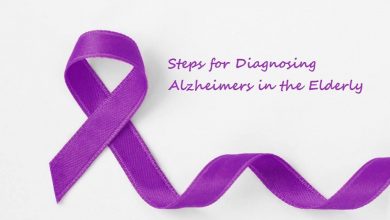Differences Between Dementia and Alzheimer’s

It has many common symptoms with dementia and Alzheimer’s disease, but the two ailments are different. Dementia is one of the ailments that can occur around many people, especially older individuals. The prevalence of dementia is quite broad. But Alzheimer’s disease has a special place with its unique physiological symptoms. Even some doctors have been found unable to distinguish between dementia and Alzheimer’s disease. Dementia and Alzheimer’s disease aren’t the same. One is a subset of the other. In this article, we investigated the differences between dementia and Alzheimer’s. Continue reading!
What are the Symptoms of Dementia and Alzheimer’s?
Symptoms of dementia typically vary depending on the cause. Common symptoms include:
- Memory slimming,
- Communication and speech problems,
- Considerable weakness in thinking ability,
- The decline in thinking skills,
- Problems with reasoning,
- Inability to concentrate or decrease in focus,
- Abnormal visual perception, such as hallucinatory vision, failure to perceive movement or inability to see noticeable differences between colors.

Alzheimer’s disease, on the other hand, goes through different stages. Because of this, symptoms may vary depending on the stage of this problem. Symptoms of Alzheimer’s in general include:
- There are regular drops in memory.
- Patients are unable to concentrate and have trouble focusing.
- The patient repeatedly asks similar questions.
- They instantly forget any information they read. They cannot make a plan or execute a plan.
- They essentially forget their names.
- Lack of interest in the environment decreases. Patients largely avoid conversations or participation in social activities. They cannot remember personal information such as home address or phone number.
- They mix friends and relatives; for example, patients can mix their mothers with their spouses. They may also experience loss of bladder or bowel control.
- Patients may need help even for their most basic needs, such as eating, drinking, walking, or sitting.
- Typically, patients experience problems with stiffness or deformity in the joints.
Does A Dementia Diagnosis Mean Alzheimer’s?
Absolutely no!
A dementia diagnosis doesn’t mean Alzheimer’s. Dementia means being diagnosed with a range of symptoms, such as setbacks in memory, reasoning ability, or thinking as well. Dementia can be linked to various causes, such as substance abuse or paralysis, not just Alzheimer’s disease. To diagnose Alzheimer’s disease, the doctor must perform special procedures, such as a physical examination and a series of tests, and positron emission tomography (PET) scanning.
How Do Dementia and Alzheimer’s Symptoms Compare?
There is a wide range of possible dementia symptoms. But the symptoms of Alzheimer’s disease are a little more specific. Dementia symptoms vary entirely depending on what factor is causing this problem, and also from patient to patient. Typically dementia symptoms are divided into three different groups. These:
- Problems with thought, memory, and language: The patient can be largely forgetful in such cases. The patient can repeat questions, forget words, be quite tricky or confused when chatting.
- Problems with social activities: Patients may have problems with their social or everyday activities, may be unhygienic, or may neglect their homes to a large extent. They can also disappear suddenly in known places.
- Behavioral and emotional problems: Patients may experience different types of emotional or behavioral issues, including being introverted, anxious, and even aggressive. Also, they can be constantly restless and have trouble sleeping.
Different causes of dementia problem can have other symptoms. But as these symptoms progress over time, patients are more likely to have all these symptoms.
The first symptom that is most likely to occur, especially in Alzheimer’s disease, is memory problems. Patients may even lose interest in their favorite hobbies or activities. Over time, these problems get worse. More severe problems such as aggression, hallucinations, urinary incontinence, or depression may occur in later stages of Alzheimer’s disease.
Alzheimer’s Disease is A Type of Dementia!
Dementia and Alzheimer’s disease should not be seen as identical. Alzheimer’s disease causes the 6th most deaths in the USA. The leading cause of 50 to 70% of all types of dementia is Alzheimer’s disease.
The causes of dementia are so vast that free radicals and many diseases can lead to dementia. When identifying the causes and symptoms of dementia, the physical and mental slowdown brought about by old age should not be immediately evaluated in the dementia class. As we age, our body and mind functions slow down, a natural consequence of our physiology. But this process should not be too fast than it should be, and the results should not turn our lives upside down.
There are as many different types of dementia as there are other causes. Vascular dementia, lewy body dementia, and frontotemporal dementia are some of these. Many times patients experience symptoms of more than one type of dementia at the same time. For example, you may have Alzheimer’s disease and vascular dementia at the same time.
Symptoms of dementia are very variable. Memory problems, communication, language difficulties, focus problems, loss of attention, impaired reasoning ability, and visual perception are common symptoms of dementia. But different types of dementia are associated with different kinds of brain damage.





